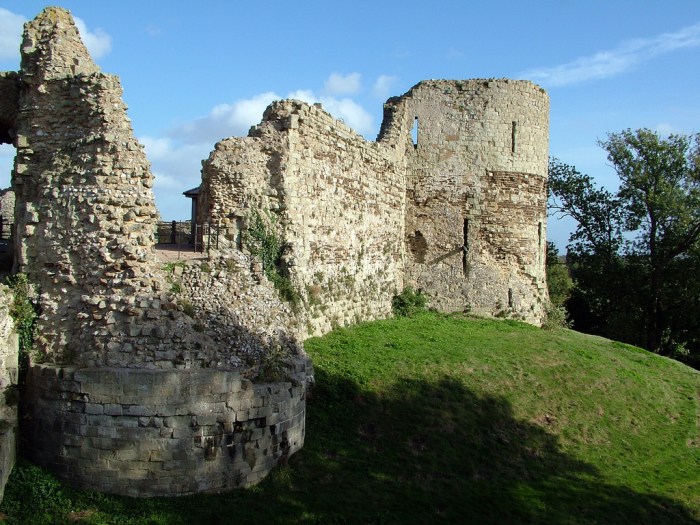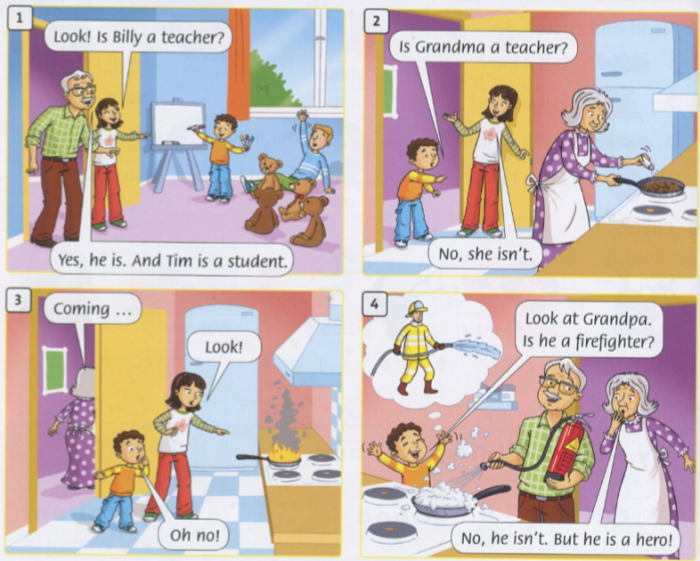Unit 1 forging a hero answers – Welcome to Unit 1: Forging a Hero! This unit delves into the captivating concept of heroism, exploring its significance throughout history and culture. Join us as we uncover the qualities that define heroes, the challenges they face, and the impact they have on our world.
From ancient myths to modern-day role models, heroism takes many forms. We’ll examine the theories and perspectives that shape our understanding of heroes, analyzing their journeys and the lessons we can learn from them.
Introduction
This unit delves into the multifaceted concept of heroism and explores the process of forging heroes. We will examine the qualities and traits that define heroes, the challenges they face, and the impact they have on society. Throughout our journey, we will encounter diverse perspectives on heroism, ranging from mythological figures to contemporary role models.
By understanding the essence of heroism, we can cultivate these qualities within ourselves and contribute to a world where heroes thrive.
Significance of Heroism
Heroes serve as beacons of hope and inspiration, embodying the values and aspirations of their communities. They demonstrate courage, resilience, and selflessness, reminding us of our own potential for greatness. By studying heroism, we gain insights into the human spirit’s capacity for extraordinary deeds and the transformative power of individual actions.
Through the lens of history, literature, and personal experiences, we will explore the enduring significance of heroes and their enduring impact on human civilization.
Key Concepts and Theories

The concept of heroism is multifaceted, encompassing traits such as courage, sacrifice, and perseverance. Courage involves confronting fear and danger with determination, while sacrifice entails giving up something valuable for a greater cause. Perseverance, on the other hand, is the unwavering determination to achieve a goal despite obstacles.
Theories of Heroism
Various theories have been proposed to explain the nature and development of heroism. One prominent theory is the “Great Man” theory, which suggests that heroes are born with exceptional qualities that set them apart from ordinary individuals. Another theory, the “Social Learning Theory,” emphasizes the role of social interactions and modeling in shaping heroic behavior.
Additionally, the “Situational Theory” proposes that heroism is primarily a response to specific circumstances and opportunities, rather than inherent traits.
Historical and Cultural Perspectives

Throughout history and across cultures, heroes have emerged as individuals who embody exceptional qualities and inspire admiration and respect. These heroes represent ideals, values, and aspirations that resonate deeply within their respective societies.
Cultural factors play a significant role in shaping perceptions of heroism. Each culture has its own unique set of values, beliefs, and norms that influence how individuals are recognized and celebrated as heroes. These cultural factors include:
Social Values
The values that a society holds in high regard, such as courage, compassion, and sacrifice, often shape the qualities that are associated with heroes. For example, in ancient Greece, heroes were admired for their bravery and military prowess, while in many Eastern cultures, heroes are often revered for their wisdom and spiritual enlightenment.
While Unit 1 Forging a Hero Answers offers valuable insights, exploring the scarlet ibis plot diagram can enhance your understanding of character development and the complexities of sibling relationships. Don’t miss out on these resources as you delve deeper into Unit 1 Forging a Hero Answers.
Historical Context
The historical context in which heroes emerge also influences their characteristics and the reasons for their heroism. During times of war or crisis, heroes may emerge as leaders who inspire their people to overcome adversity. In times of peace, heroes may be those who make significant contributions to society through their inventions, discoveries, or acts of service.
Cultural Myths and Legends
Cultural myths and legends often play a role in shaping perceptions of heroism. These stories can provide examples of heroic behavior, reinforce cultural values, and inspire individuals to strive for greatness. For example, the story of King Arthur and the Knights of the Round Table has been a source of inspiration for heroes throughout history.
Modern Interpretations of Heroism

In the contemporary world, the concept of heroism has undergone significant transformations. The advent of technology and social media has reshaped our perceptions and definitions of heroism, presenting both opportunities and challenges.
Role of Technology and Social Media
Technology has empowered individuals to amplify their voices and actions, creating new avenues for heroism. Social media platforms provide a global stage where ordinary people can share their stories of courage, resilience, and selflessness. The widespread availability of recording devices enables the documentation and dissemination of heroic acts, fostering a sense of shared purpose and inspiration.
Challenges of Defining Heroism
The complexities of the modern world have made it challenging to define heroism in a universally accepted way. The proliferation of information and the constant barrage of news can desensitize us to acts of heroism, making it difficult to distinguish between genuine and self-serving actions.
Moreover, the erosion of traditional values and the rise of relativism have led to a fragmented understanding of what constitutes heroism.
The Hero’s Journey: Unit 1 Forging A Hero Answers
The Hero’s Journey, a concept introduced by mythologist Joseph Campbell, is a universal pattern found in countless stories and myths across cultures. It describes the archetypal stages and experiences that heroes typically undergo during their transformative quests.
Throughout their journeys, heroes encounter challenges, obstacles, and moments of revelation that test their limits and forge their character. These experiences often follow a predictable sequence, providing a framework for understanding the psychological and emotional growth of heroes.
Departure
The journey begins with a call to adventure, a moment when the hero is presented with an opportunity to leave their ordinary life behind and embark on an extraordinary quest. This call may come in the form of a threat, a vision, or a compelling desire.
- Reluctance: Initially, heroes may hesitate or refuse the call due to fear, insecurity, or a sense of duty to their current life.
- Mentorship: A wise mentor or guide often appears to provide support, advice, and encouragement to the hero as they prepare for their journey.
The Impact of Heroes
Heroes can have a profound impact on individuals and society, both positive and negative. On the one hand, they can inspire us to be better people, to strive for greatness, and to make a difference in the world. They can give us hope, courage, and strength, and they can help us to see the best in ourselves.
On the other hand, heroes can also be a source of danger and harm. They can be tempted to use their power for their own gain, and they can become corrupt or even evil. They can also be a target for enemies, who may try to harm them or those they love.
Recognizing and Celebrating Heroes
It is important to recognize and celebrate heroes, both past and present. They deserve our admiration and gratitude for their sacrifices and accomplishments. By honoring them, we can show our appreciation for their service and inspire others to follow in their footsteps.
However, it is also important to be aware of the potential risks and consequences of hero worship. We should not blindly follow heroes, and we should be critical of their actions. We should also remember that heroes are human beings, and they are not perfect.
They may make mistakes, and they may not always live up to our expectations.
The Importance of Balancing Recognition and Criticism, Unit 1 forging a hero answers
The key is to find a balance between recognizing and celebrating heroes and being critical of their actions. We should honor them for their accomplishments, but we should also hold them accountable for their mistakes. By doing so, we can ensure that heroes continue to inspire us to be better people, while also preventing them from becoming corrupt or dangerous.
Heroism in Literature and Media

Throughout history, literature and media have played a pivotal role in shaping our understanding of heroes. From the epic tales of ancient Greece to the modern-day superhero films, these representations have influenced our expectations and provided insights into the nature of heroism.
Literary Heroes
In literature, heroes often embody ideals of courage, virtue, and self-sacrifice. Examples include:
- Achilles from Homer’s Iliad: A legendary warrior known for his bravery and pride.
- Elizabeth Bennet from Jane Austen’s Pride and Prejudice: A strong-willed and independent woman who defies societal norms.
- Atticus Finch from Harper Lee’s To Kill a Mockingbird: A moral and compassionate lawyer who stands up for justice in the face of adversity.
Heroes in Film and Other Media
Heroes in film and other media often reflect contemporary values and aspirations. Examples include:
- Superman from DC Comics: A symbol of hope and justice with superhuman abilities.
- Rey from the Star Warsfranchise: A young woman who discovers her own strength and courage.
- Captain America from Marvel Comics: A patriotic superhero who represents the ideals of freedom and democracy.
These representations of heroes shape our understanding of heroism by highlighting the qualities we admire and aspire to. They inspire us to strive for greatness, confront challenges, and make sacrifices for the greater good.
Conclusion

The exploration of heroism in this unit has shed light on its enduring relevance and significance in shaping human narratives and societies. Through examining the historical, cultural, and modern perspectives on heroism, we have gained insights into the multifaceted nature of heroes and their profound impact on individuals and communities.
In contemporary society, the concept of heroism continues to resonate as we seek inspiration and guidance in an ever-changing world. The qualities of courage, resilience, compassion, and sacrifice that define heroes serve as beacons of hope and provide a framework for ethical decision-making.
The Relevance of Heroism Today
- Role Models and Inspiration:Heroes provide tangible examples of human potential and inspire us to strive for excellence and overcome challenges.
- Moral Compass:The stories and actions of heroes can shape our moral values and guide our behavior towards empathy, justice, and integrity.
- Social Cohesion:Heroes can unite communities by embodying shared ideals and aspirations, fostering a sense of belonging and purpose.
- Hope and Resilience:In times of adversity, heroes offer a glimmer of hope and remind us of our capacity for resilience and triumph.
FAQ Explained
What is the central focus of Unit 1: Forging a Hero?
Unit 1 explores the concept of heroism, its historical and cultural significance, and the qualities and challenges associated with heroes.
How does the unit explore the hero’s journey?
The unit examines the common stages and patterns found in the journeys of heroes, analyzing their psychological and emotional experiences.
What is the significance of heroism in contemporary society?
Heroism remains relevant today, inspiring us to overcome challenges, make a difference, and foster a sense of hope and courage.